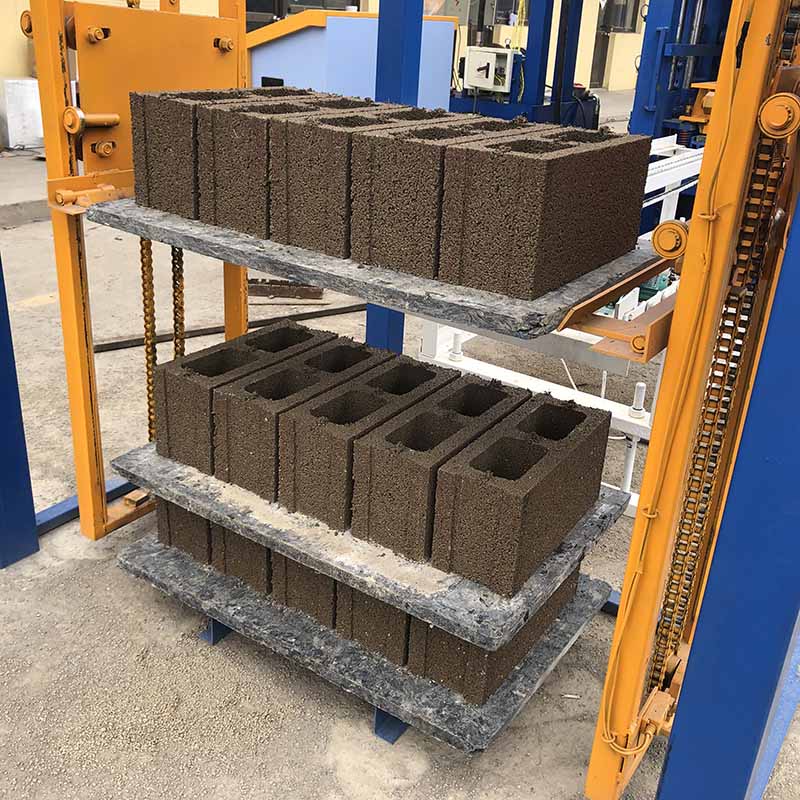
Image source:Aiwei block machine
Introduction
Government policies play a pivotal role in shaping the adoption and impact of technology in various sectors, including construction. Hollow block machines, with their potential to revolutionize construction practices, are no exception. This article provides a comprehensive global perspective on how government policies influence the use of hollow block machines. By examining policies from different countries, we can gain insights into the diverse approaches taken to promote sustainable construction, affordability, and economic development through the adoption of this technology.
1. The Role of Hollow Block Machines in Sustainable Construction
Before delving into government policies, it’s essential to understand the significance of hollow block machines in sustainable construction.
- Eco-Friendly Construction: Hollow block machines promote sustainability by optimizing material usage and reducing waste. They contribute to energy efficiency in buildings, aligning with global environmental goals.
- Affordability: Hollow block construction is cost-effective, making housing more accessible to a broader population, a crucial aspect of sustainability.
2. Case Study 1: Singapore
Singapore is renowned for its innovative urban planning and sustainability efforts. The government has introduced policies to encourage sustainable construction practices, including the use of hollow block machines.
- Green Building Incentives: The Singaporean government offers incentives such as tax breaks and grants for developers and builders who incorporate green building practices, including the use of eco-friendly materials like hollow blocks.
- Building Codes and Standards: Singapore has stringent building codes and standards that encourage energy-efficient and environmentally responsible construction methods, which align with the advantages of hollow block technology.
3. Case Study 2: Nigeria
Nigeria, like many developing nations, faces a significant housing deficit. The government has recognized the potential of hollow block machines in addressing this challenge.
- Affordable Housing Initiatives: Nigeria’s government has launched various affordable housing programs that promote the use of hollow block machines. These initiatives aim to make homeownership more attainable for the average citizen.
- Skills Development: The Nigerian government supports skill development programs to train local laborers in the use of hollow block machines, boosting employment opportunities and local industries.
4. Case Study 3: Germany
Germany is known for its advanced construction industry and strong commitment to sustainability.
- Building Regulations: Germany has comprehensive building regulations that promote energy-efficient construction. Hollow block machines, which create thermally efficient structures, align well with these regulations.
- Research and Development Funding: The German government invests in research and development for sustainable construction technologies, including hollow block machines. This support encourages innovation and adoption within the construction sector.
5. Common Government Policy Instruments
While policies vary from country to country, several common policy instruments are used to promote the use of hollow block machines:
- Tax Incentives: Tax breaks and incentives encourage builders and developers to adopt sustainable construction practices, including the use of hollow blocks.
- Subsidies: Subsidies can offset the initial costs of technology adoption, making it more accessible to a broader range of stakeholders.
- Training Programs: Governments often support skill development and training programs to ensure that local laborers are proficient in using hollow block machines.
6. Challenges and Future Prospects
Despite the many advantages, the adoption of hollow block machines can face challenges, including:
- Infrastructure Development: Adequate infrastructure, such as reliable power supply and transportation networks, is essential to support the widespread use of hollow block machines.
- Regulatory Frameworks: Ensuring that the technology is used safely and efficiently requires robust regulatory frameworks and enforcement mechanisms.
Сonclusion
Government policies are instrumental in shaping the adoption and impact of hollow block machines in the construction industry. Whether through incentives, regulations, or skill development programs, governments worldwide are recognizing the potential of this technology to promote sustainability, affordability, and economic growth. By studying policies and initiatives from different countries, we can gain valuable insights into the diverse approaches to harnessing the benefits of hollow block machines and driving sustainable construction practices on a global scale.
